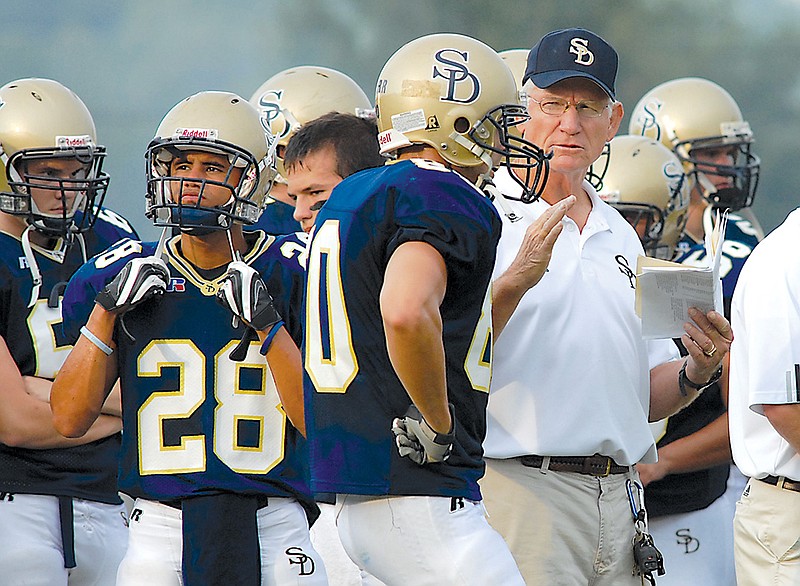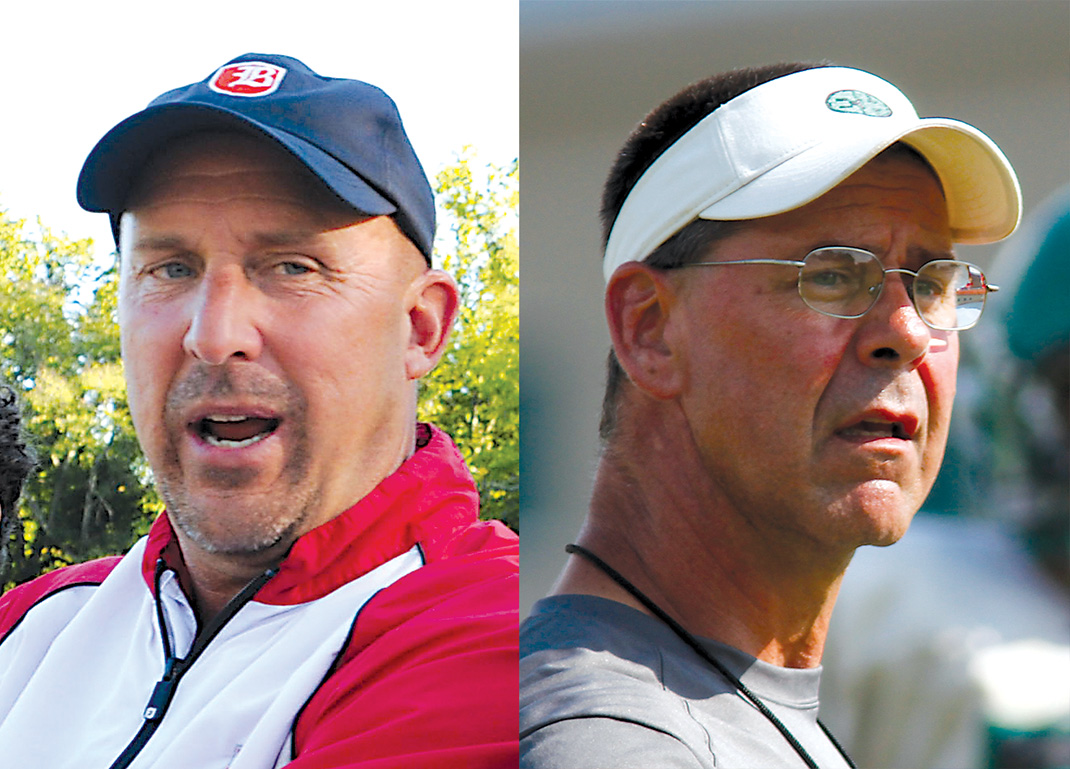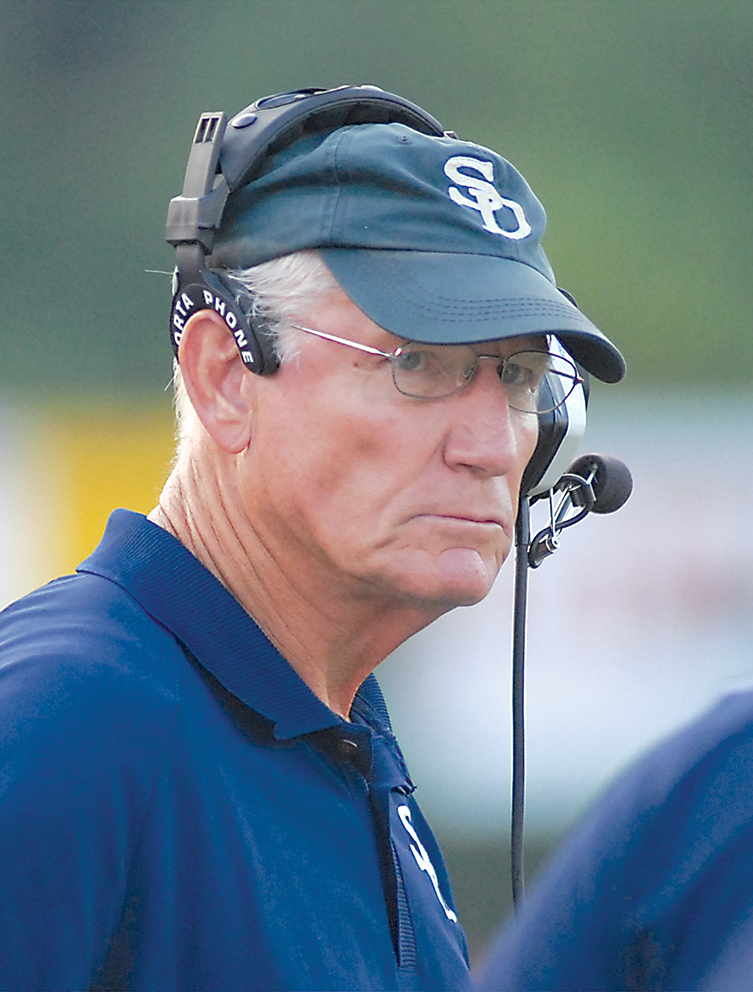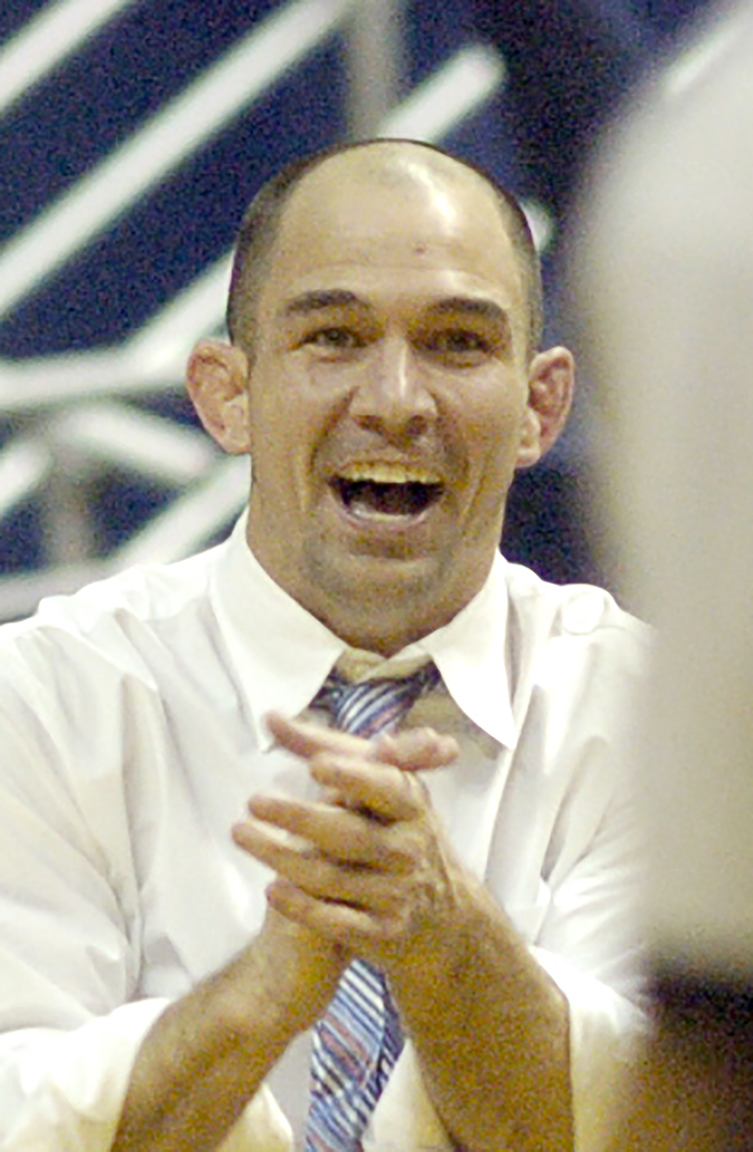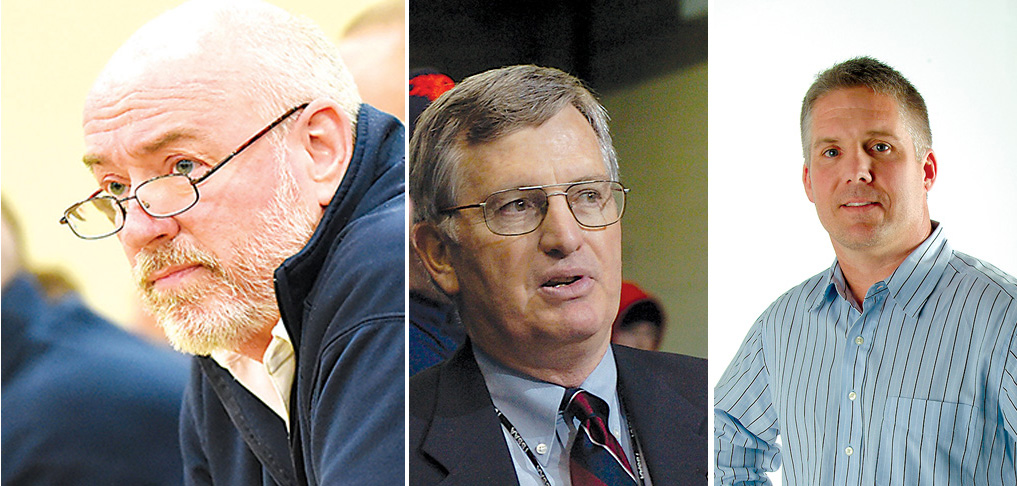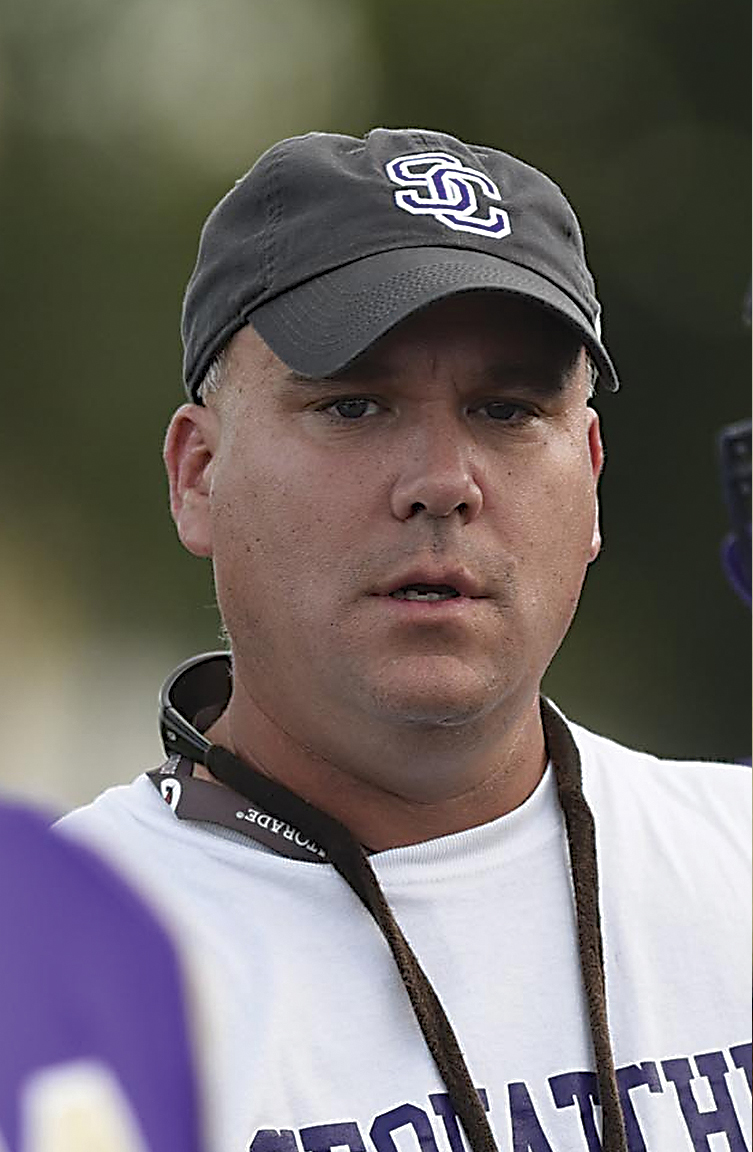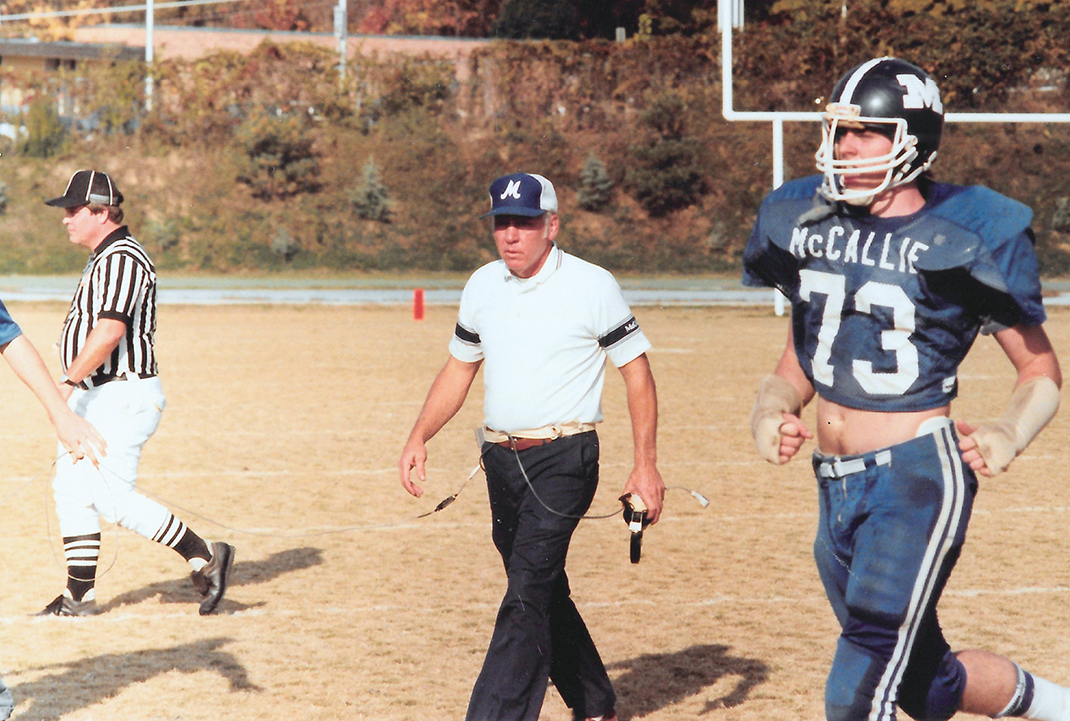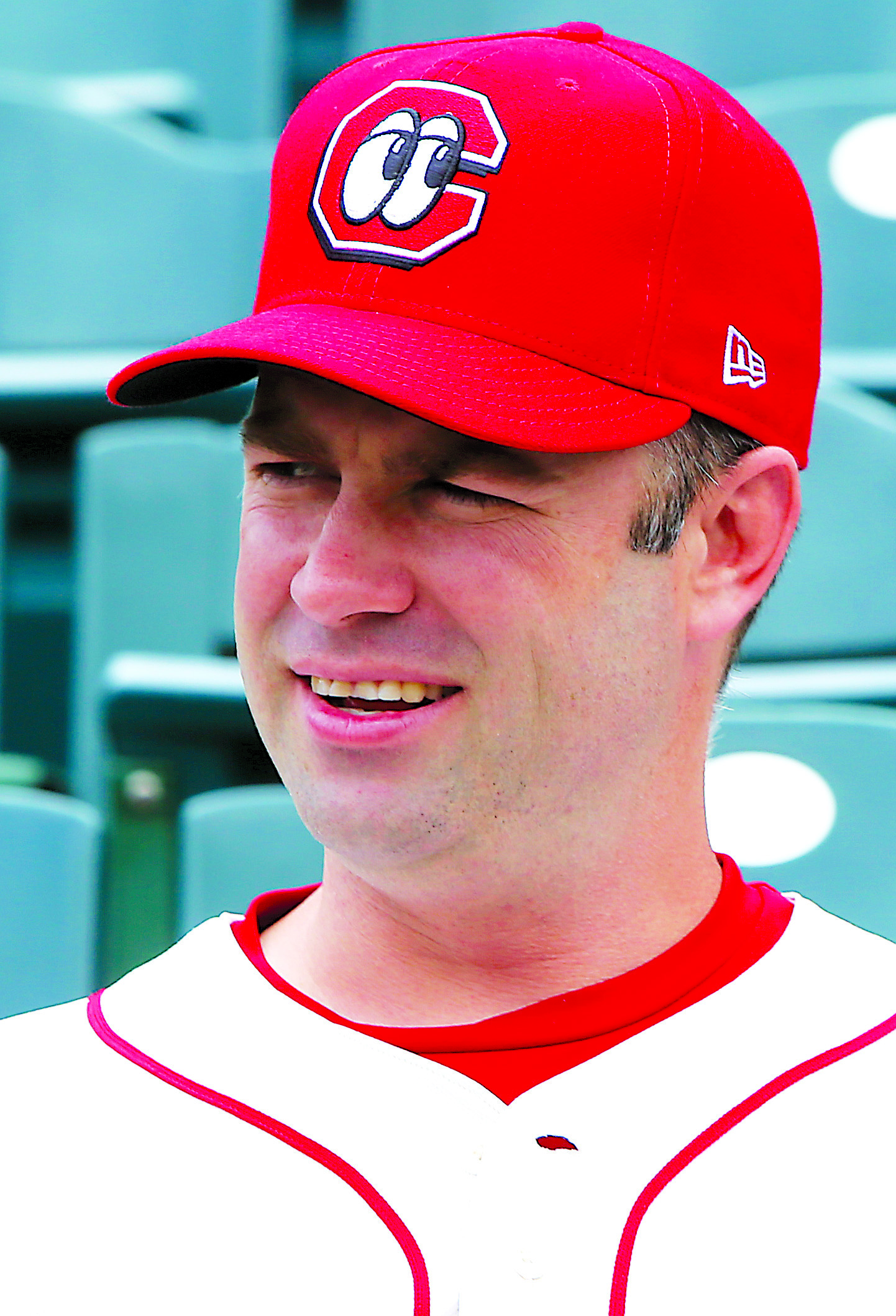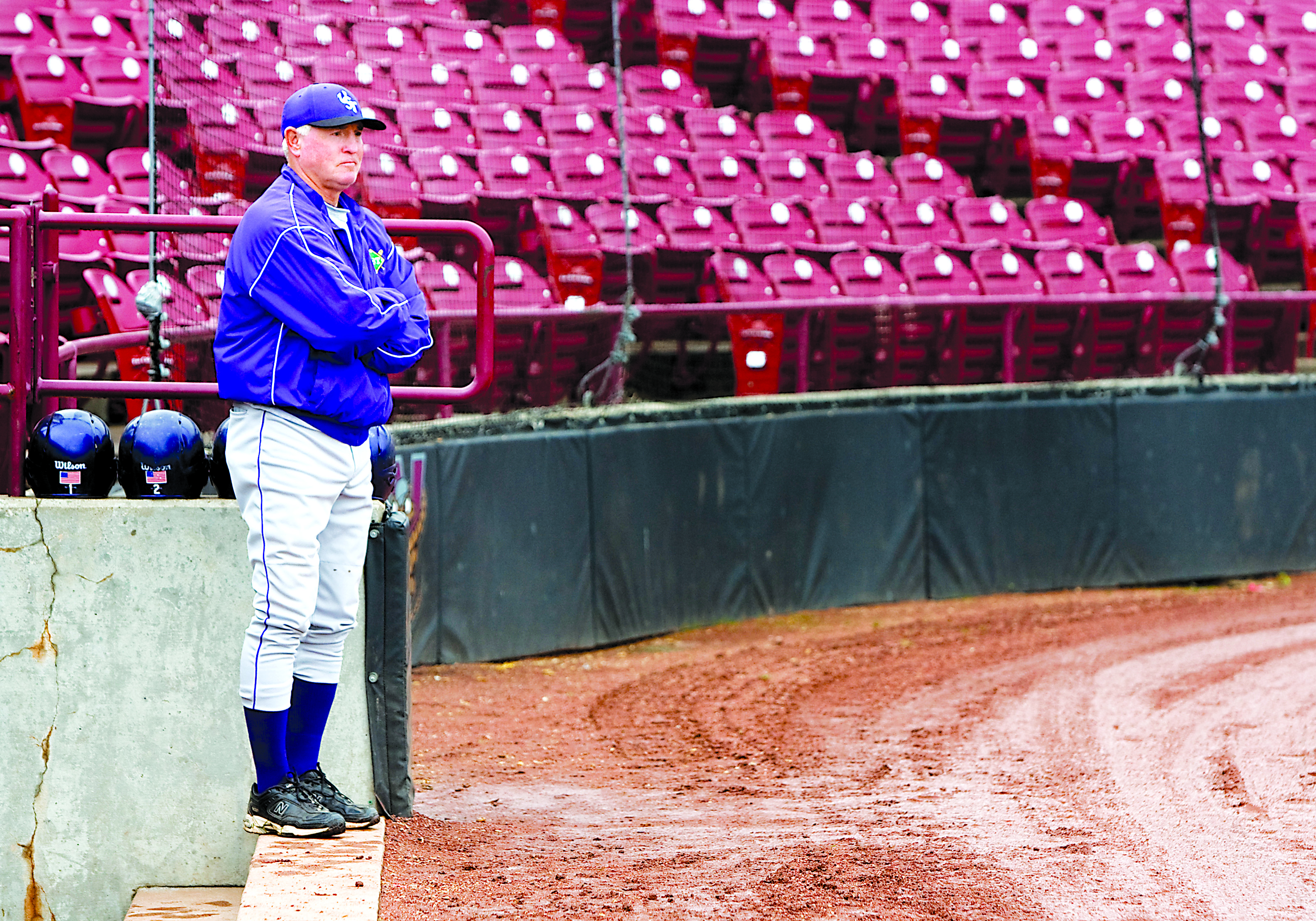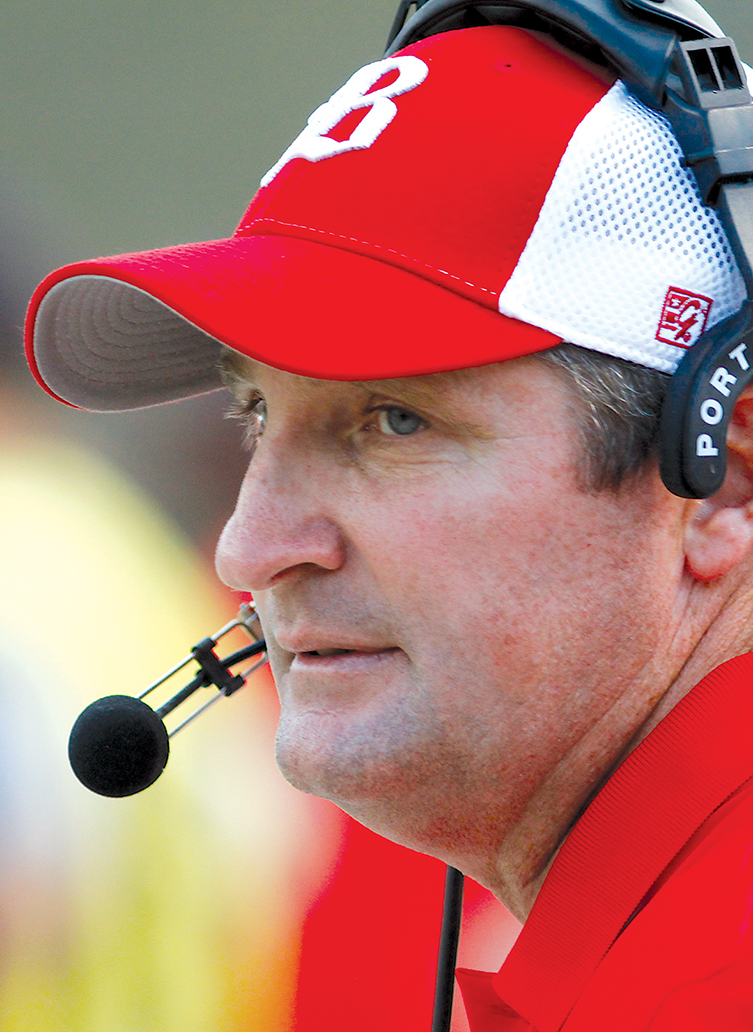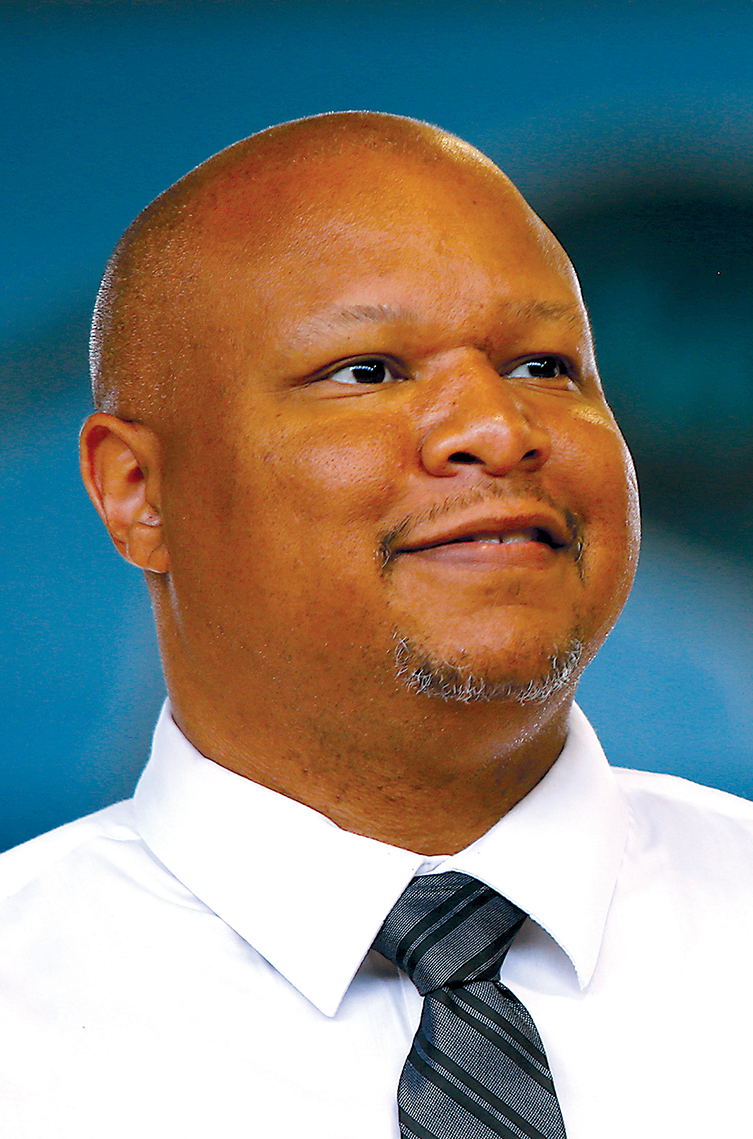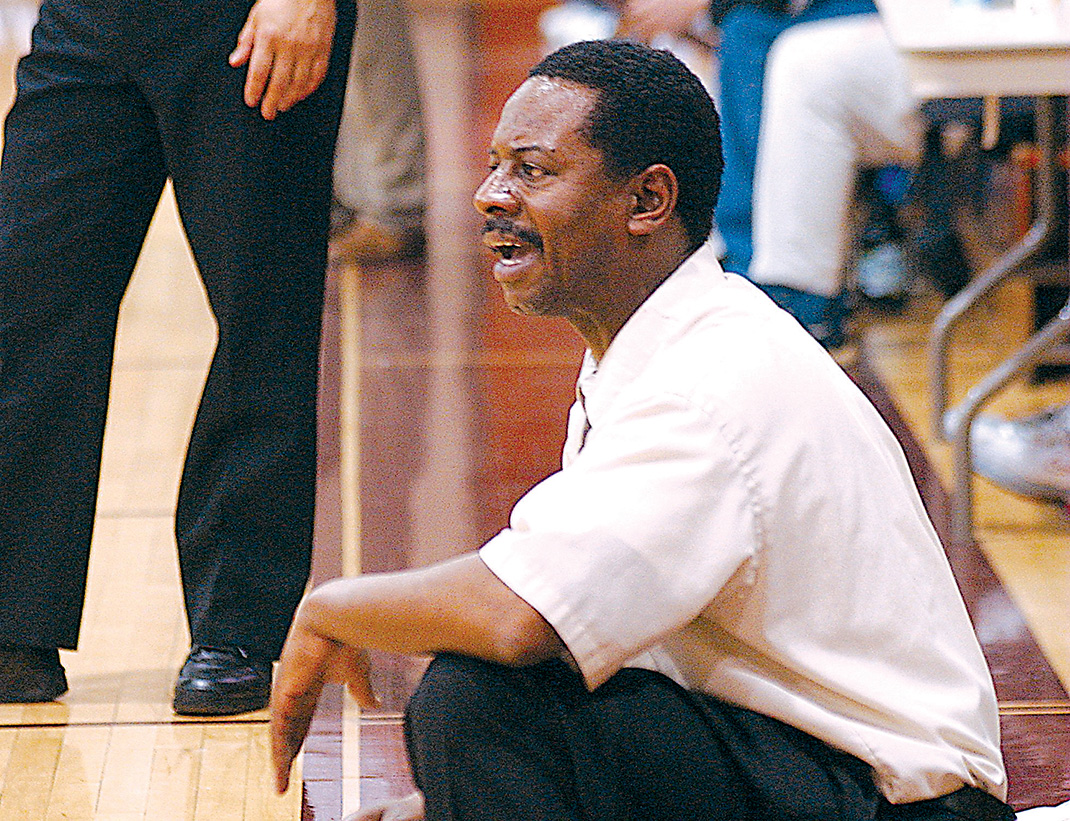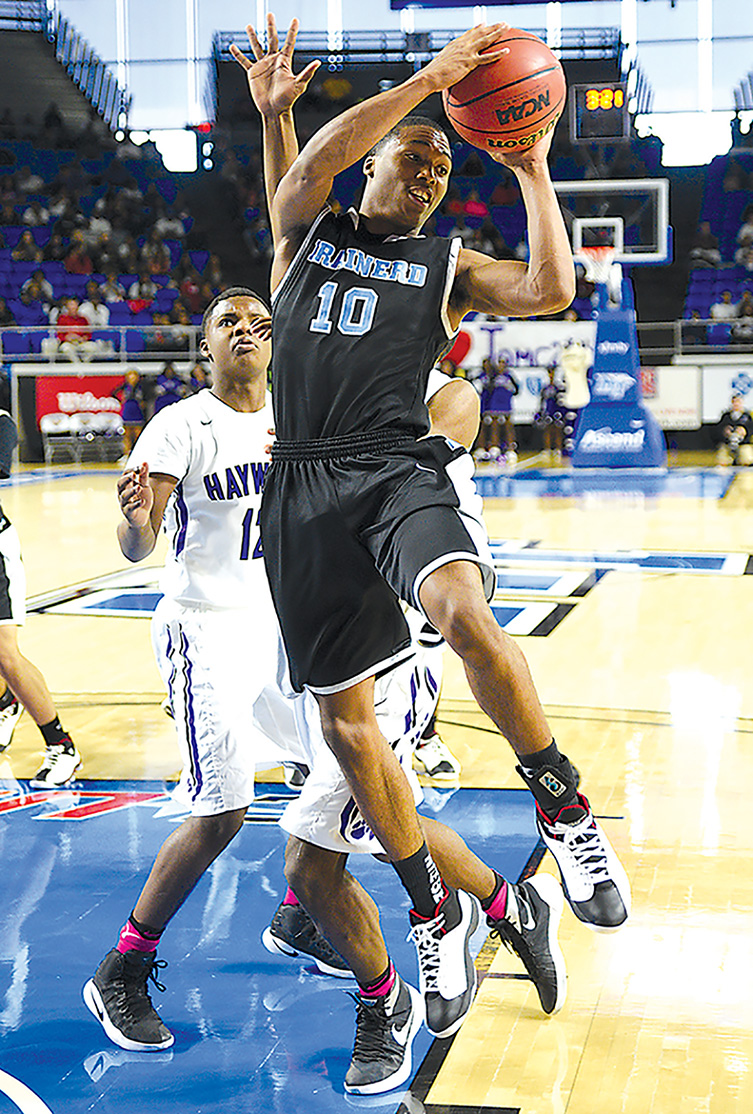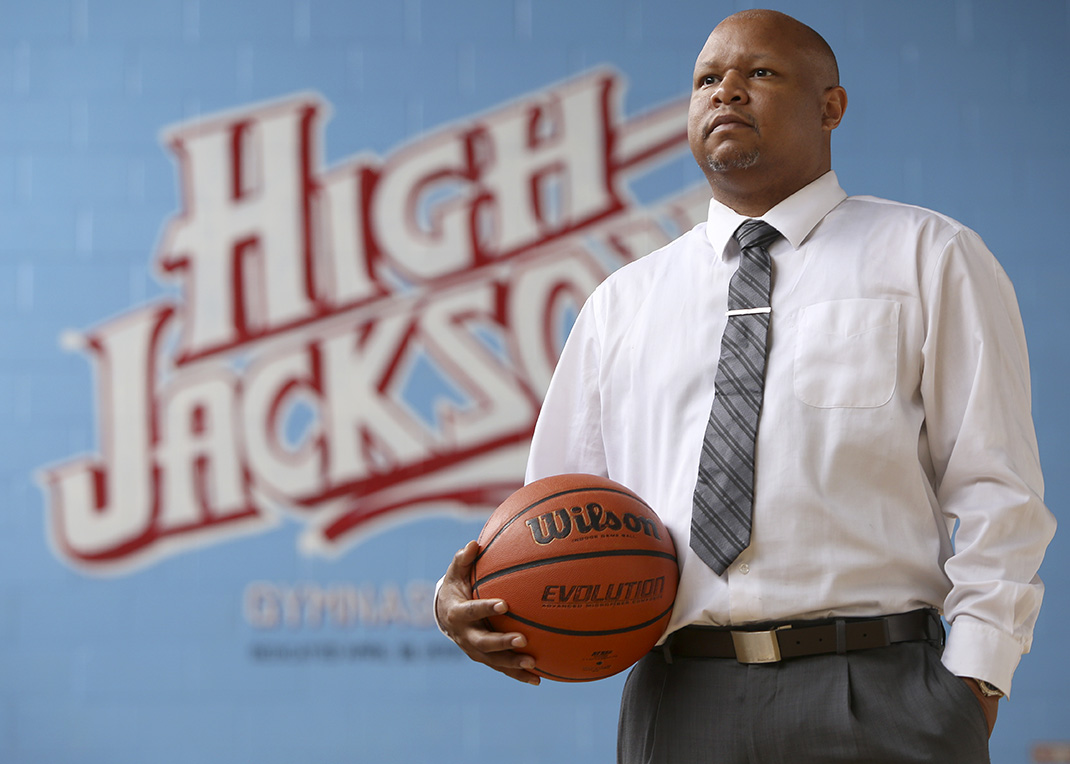It's 1978 and the Red Bank Lions are in double overtime in the state semifinals against the Farragut Admirals from Knoxville. Red Bank football coach Tom Weathers decides to make a gutsy call. Rather than try to kick an extra point after his team's most recent touchdown, which tied the game, he sends his offensive line back onto the field to go for a two-point conversion. If the Lions make it, they are state championship-bound. If they don't, they go home with nothing.
The play is a dump pass to one side of the field, designed to move the ball just enough yards for the score. Quarterback Bill Price will throw to wide receiver Gary Partrick.
When they get to the line of scrimmage, however, Partrick and Price decide to take a risk. They decide to flip the play to the opposite side of the field.
"I don't remember whether it was me, Bill or both of us," says Partrick, now in his 50s. "To this day, I still don't know what made us think we could or should do that."
But the play works. The Lions score the two-point conversion, sending them to the state championship.
Amidst the raucous celebration that follows the play, Partrick notices Coach Weathers calmly walk out onto the field.
"He just winked at me. I remember it like it was last season," Partrick says. "He knew that we'd changed it."
That wink was just as meaningful to Partrick as any victory or touchdown. Those little signs of praise, those half-smiles Weathers gave when you did something right, those were what his players lived for, Partrick says.
"I tried to emulate him when I became a coach, that calm, stern demeanor he had," says Partrick, who has coached at Baylor School since 2000. "But I couldn't remain as calm as him, have that presence he always had. He had a sort of Tom Landry firmness to him. He never lost his cool."
Even if he couldn't completely match Weathers' on-field attitude, Partrick took countless lessons and tips away from the great's coaching. Both on the field and off, Partrick says that Weathers changed his life - and he isn't alone.
Here, two of Coach Weathers' former Red Bank players, Partrick and Ted Gatewood, now the head football coach for East Hamilton High School, share their thoughts on what made Weathers a great coach and a great man.» "We were fortunate enough that Coach Weathers had a son that was our age. He was really hard on him so he wouldn't be accused of favoritism. We figured if anyone was going to be his favorite, it would be his son, and [Coach] didn't treat him any differently than the rest of us. I knew [Weathers] as 'Little Tom's dad' before he was my coach, and he was no different regardless of where he was. He was Coach Weathers all the time." - Gary Partrick
» "[Weathers] commanded respect, which was important. I think all of us would have loved to have a closer relationship with him, but he was just on a different level, a different pedestal. He could call me right now at whatever age he's at, and my heart rate would go up. That's the effect he had on us. There haven't been many like him in this town." - Gary Partrick
» "I contemplated transferring from Austin Peay following my freshman season and playing at UTC. I had contacted the UTC staff and made sure that this decision wouldn't cost my father one cent. I told my father of my intentions over Christmas break, and his reply had a few stipulations that had to be met before I could transfer. The one that kept me at Austin Peay was that I had to go see Coach Weathers and tell him I was a quitter. Out of my respect and fear, that was a deal breaker. To this day, he will always be referred to as Coach Weathers, never Tom. That's how much Coach Weathers meant in my life." - Gary Partrick» "I have two coaches who were very important to me in my youth. Weathers and assistant coach Jerry Cotter, both of Red Bank High School. Both Coach Weathers and Coach Cotter, to me, have always been a team. They have always been there for advice on football, but more importantly, in life. They truly lived what they taught." - Ted Gatewood
» "I can remember in 1981 we were playing Oak Ridge High School at Oak Ridge. They were and still are a state and nationally recognized program. Oak Ridge had a really long home winning streak going. We go up there and in the first half we trailed by a couple of touchdowns. We were not playing well. At halftime, Coach Weathers came in pretty calm and he and his staff challenged our team to remain composed and stick together and keep playing hard. We ended up coming back in the second half to win the game, which was a great memory." - Ted Gatewood
For many of today's coaches, the quest for approval from the men who mentored them helped steer not only their on-field plays but their lives, too. We asked numerous men in the community to talk about their experiences with the coaches in their lives. Here are their responses.
Heath Eslinger
Wrestling coach, University of Tennessee-Chattanooga
Most influential coach(es): Alan Morris Sr., Bradley County wrestling club coach fom 1986-2006; Turner Jackson, Bradley Central High School wrestling coach from 1979-1990; Steve Logsdon, Bradley Central High School wrestling coach from 1991-2011
» "In middle school I started wrestling to survive the beatings my older brother put on me. Coaches like [Morris, Logsdon and Jackson] really paved the way for my journey. Alan Morris believed in me early - or at least he acted like he did, ha! Coach Logsdon and Coach Jackson really taught me how to train and suffer a little for the sake of sport. [They taught me to] get outside your comfort zone. I can remember my first 5-mile run, 10-mile run, 20- and 40-mile bike ride. They just helped me push down some physical barriers. I did Ironman two years ago. I give them a lot of credit for instilling that type of mentality in me."
» "They let me be a leader. I still recall a match we tied in front of our student body. Coach Logsdon was furious. He walked in and I was addressing our team. He walked back out and knew it was covered. It was my first step into coaching. We knew who was in charge, but he let us have some ownership."
» "Obstacles are real, but there are ways around them, over them or through them. I wasn't very good, but [my coaches] made me believe I could be great."
Adam Caine
Football coach, Sequatchie Valley High School
Most influential coach: Pete Potter, McCallie School football coach from 1973-1993
» "I consider my father and Coach Potter to be two of the true mentors in my life. They both had a gift for shaping boys into men."
» "[Potter] taught us to attack our opponent and not to sit back on our heels. I think that's an important lesson for a boy becoming a man. My freshman year, a smaller player impressively attacked a larger player, resulting in a great tackle, and I remember Coach saying, 'Gosh dang, Bryan. I don't care if you're 130 pounds. I don't care if you wear glasses. If you'll hit like that, you'll play for me!'"
» "My sophomore year, we had two weeks of two-a-day camp. After the first morning practice, one of the better senior players was late to a meeting and Coach Potter told us, 'Sometimes you have to hit that mule over the head with a two-by-four.' So instead of watching film, we went out and did what is known as the 'two-by-four' practice, which consisted of three hours of various conditioning drills. It was an important lesson because we learned that no one was exempt from his accountability and disclipline tactics."
Jake Mauer
Manager, Chattanooga Lookouts
Most influential coach: Dennis Denning of St. Thomas (St. Paul, Minnesota) baseball coach from 1995-2010
» "The biggest thing that I took from him was to be yourself. If you are true to yourself and hold yourself accountable, then everything else will fall into place. Whether you win or lose, it doesn't matter. If you are true to yourself, you can deal with the outcome. It also allowed us to take ownership of our team. We held each other responsible and played for each other."
» "[Denning] is a no-nonsense person. He will listen and give quality advice on more than just baseball. He would do anything for his players, both on and off the field, as long as you worked hard. He always demanded effort. Every person had a job to do on a team. If we were going to be successful on the field, each person had to pull their own weight. Our goal as a team was to be the best teammate. This attributed to team chemistry; we rarely lost close games because we didn't want to let our teammates down. We all had similar goals."
» "[Denning] allowed his team leaders to run the locker room. He would steer the ship if we needed reminders, but he allowed us to be ourselves."
Phil Massey
Football coach, Baylor School
Most influential coach(es): Burl Inman, Skyview Academy (Memphis, Tennessee) track and basketball coach from roughly 1977-1981.
» "Coach Inman was a military man, U.S. Navy, and loved God and [his] country, in that order."
» "Coach was a spiritual man and would not preach to us, but provided words of wisdom from the Bible. He had hundreds of stories that brought to life the words and thoughts he would give us as his athletes. The summer I worked out with him, he had a different index card taped to his dashboard of his truck that was our theme for the day. Always motivating and trying to help teenagers see the big picture. His influence meant so much to me that I signed a football scholarship with Baylor University to play football after my senior season of high school. Coach Inman graduated from Baylor University. No coincidence!"
» "During the winter of my freshman season in basketball, we were out of school for ice and snow. [Coach] called practice each day and ran from his home, which was nearly 8 miles away, carrying the bag of basketballs on his back. None of us had any excuse because he lived further than most of us from school. His dedication drove us to playing at a high level because we didn't want to let him down."
» "Before my senior football season, Coach asked me if I wanted to be in the best shape of my life going into that season. This is in a time before personal trainers and mandatory workouts. He wanted no money, just my time. He wasn't even a football coach, but he knew my passion was to earn a scholarship and play college football. He carried around a small set of weights in his truck and he conditioned me all summer. He would come to pick me up at my home and would bring me back home. My high school didn't have a track so we went to the city track in my community. [He did it] for no glory, no money and no recognition. He wanted to push me to be my best."
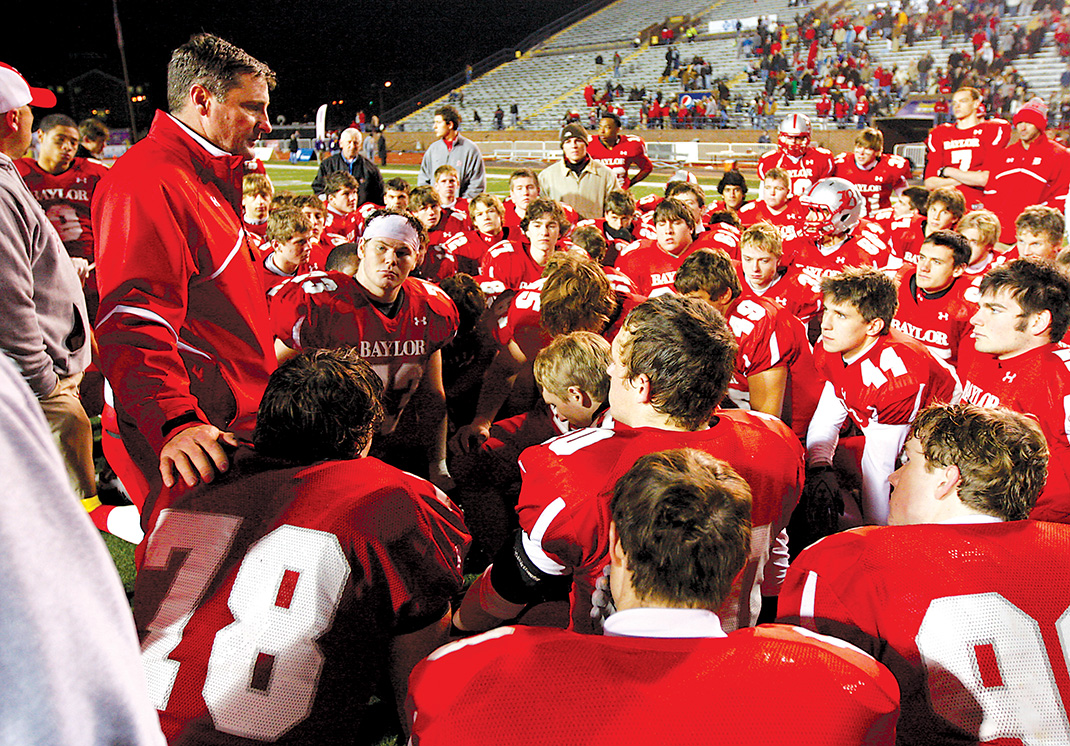 Baylor's head coach Phil Massey, left, speaks to his players during the 2011 TSSAA Division II AA championship game. His high school basketball and track coach Burl Inman always cared about every single one of his players, Massey says, and that's something he's tried to carry over to his coaching career.
Baylor's head coach Phil Massey, left, speaks to his players during the 2011 TSSAA Division II AA championship game. His high school basketball and track coach Burl Inman always cared about every single one of his players, Massey says, and that's something he's tried to carry over to his coaching career.
Levar Brown
Athletic Director, Brainerd High School
Most influential coach(es): Robert High, Brainerd High baskeball coach from 1976-2013 and Delbert "Leroy" Higgins, Howard School basketball coach from 1998-2004; 21st Century School basketball coach from 2005-2006
» "Coach Higgins consistently stressed, and still does to this day, understanding tempo on the court. He also modeled to me the care that it takes sometimes to be successful. For example, picking kids up, taking them home and making sure that they eat. I now do that daily. Coach High taught me the importance of branding and the difference between having a team versus a program. He did an amazing job building a program [at Brainerd] that became the standard for schools to model. Both coaches were awesome at getting the most out of the students, on and off the court."
» "I appreciate being thrown in the fire by Coach Higgins during my stint as an assistant at 21st Century Academy. We were set to host Central High School in our gym. This particular night, [Coach Higgins] pulled me to the side after placing the uniforms and said he was going to use the bathroom at Brainerd High School, where we were both teaching at the time, and he would be back prior to the start of the game. He did not come back! I was a young coach coaching my first varsity game as the head coach versus this big AA school. We won by 20! Coach Higgins calls me the next morning saying he was still in the bathroom and 'How did we do?' I'm grateful to him for that and believing in me. It also taught me to prepare for whatever."
Kentrell Evans
Exiting Brainerd High senior
Most influential coach: Levar Brown, Brainerd High basketball coach from 2007 to present day, and others
» "Coach Brown came into my life right after I lost my father. I met him through my AAU coach, Zach Ferrell, the summer going into my ninth-grade year. [Brown] picked me up from my house to go to a summer practice and on the way we talked about family and Christ. It shocked me that it was our first conversation, and also made me respect him from the beginning."
» "It was important to him for us to see and embrace family. We spent a lot of time with his entire family and they treated us like we were family. We got to experience several things that happened to him throughout these four years with his wife having emergency surgery on the morning after our first substate game or him having a heart problem and [being] admitted to the hospital for days. [He put] his family and us before him. He instills in us a 'we over me' attitude. He's taught me so many things, from tying a tie, which I still struggle with, to manning up to my problems."
» "He constantly keeps us together even after we graduate. We are currently in group messages with the majority of players that played with us over the past four years. [Coach Brown] always says, 'This is a family, not a team.'"
» "[My coaches] motivated me everyday and continue to encourage me to grow as a person. I maintained a 3.7 GPA, was a leader in my community and school, and they played a great role in keeping me focused. Coach Brown would always say, 'You never know who is watching and what kind of impact you have. Embrace it!' My coaches were always there when I was hungry, needed a ride or just wanted to talk."
» "There is so much that I would like to say about [all my coaches], but the most important thing I would say is thank you for loving me."
